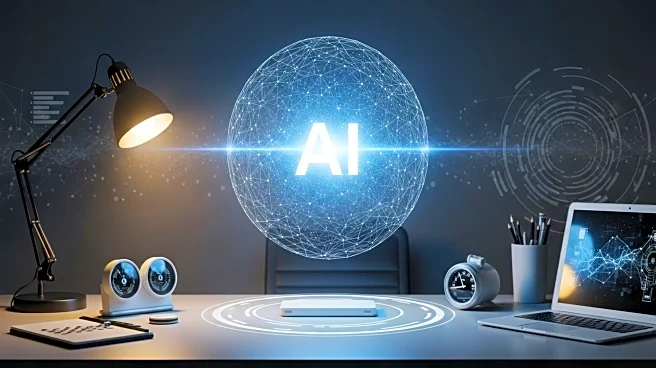What is the story about?
What's Happening?
OpenAI CEO Sam Altman announced that ChatGPT has achieved a milestone of 800 million weekly active users. This growth reflects increased adoption across various sectors, including consumers, developers, enterprises, and governments. The announcement was made during OpenAI's Dev Day, where Altman also introduced new tools for developers, such as an Apps SDK to facilitate the creation of interactive and personalized applications within ChatGPT. The platform's rapid expansion is part of OpenAI's broader strategy to secure AI infrastructure and chips, aiming to enhance its capabilities and reach.
Why It's Important?
The significant growth in ChatGPT's user base underscores the increasing reliance on AI technologies in everyday applications. This expansion has implications for various industries, as businesses and developers integrate AI into their operations, potentially transforming workflows and customer interactions. OpenAI's focus on developer tools suggests a push towards more sophisticated and personalized AI applications, which could lead to innovations in sectors like healthcare, finance, and entertainment. The widespread adoption of ChatGPT also highlights the growing importance of AI in shaping future technological landscapes.
What's Next?
OpenAI's continued development of tools and infrastructure suggests further advancements in AI capabilities. The introduction of the Apps SDK indicates a move towards more complex and adaptive AI systems, which could lead to new applications and services. As OpenAI expands its offerings, stakeholders such as businesses and developers may need to adapt to these changes, potentially reshaping industry standards and practices. Additionally, the company's partnerships and collaborations, like the one with Stripe for agentic commerce, could pave the way for new business models and economic opportunities.
Beyond the Headlines
The rapid growth of ChatGPT raises questions about the ethical and societal implications of AI technologies. Concerns about AI-induced delusions and misinformation, as seen in the case of Allan Brooks, highlight the need for responsible AI development and usage. As AI becomes more integrated into daily life, issues related to privacy, security, and the potential for AI to influence human behavior will require careful consideration and regulation. OpenAI's status as a nonprofit and its valuation as a privately held company also reflect the complex dynamics of AI's role in the global economy.
















